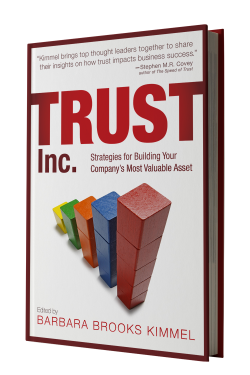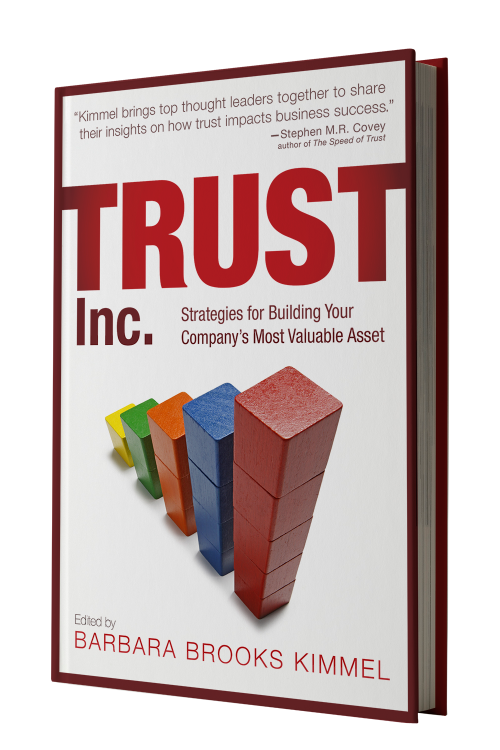With the right plan, any leader can build trust!
Trust Across America – Trust Around the World offers this 2014 gift to all leaders – twelve months of trust-building activities. Help us elevate trust by incorporating these strategies into your own organization.
January: Trustworthy leadership – A culture of trust cannot exist with an untrustworthy leader. Trustworthy behavior must start at the top and flow down through every manager in any organization.
February: Transformation – Productivity and execution begin when the leader creates a set of values and goals that are shared, accepted and adopted by all stakeholders. Leaders should regularly address all stakeholders about the steps being taken to build trustworthy behavior within the organization. Trust should not be confused with compliance.
March: Tools – There are many trust “tools” leaders can use to build trust with their internal and external stakeholders. These run the gamut from metrics and assessments to online surveys and training.
April: Treatment – The Golden Rule says to “treat others the way you want to be treated.” This certainly holds true for trust. The leader that extends trust to his or her stakeholders is more likely to have it returned.
May: Teamwork – Teamwork leads to better decisions and better outcomes. Teams create trust, and trust creates teams, especially when silos are broken down.
June: Talk – Your stakeholders need to know what steps you are taking to build a trustworthy organization. Quarterly numbers are no longer the “be all and end all.” In fact, evidence is mounting that a trustworthy culture and profitability go hand in hand.
July: Truth – Truth-telling is at the core of trust. Any leader who wants to build a trustworthy organization must have an extremely comfortable relationship with the truth. No company is perfect and it’s not necessary to air all the dirty laundry – just don’t lie about it or intentionally mislead. In times of crisis, a habit of truth telling yields particularly good returns.
August: Transparency – Merriam Webster defines “transparent” as visibility or accessibility of information, especially with business practices. A leader who thinks he or she can still hide behind a veil of secrecy need only spend a few minutes on social media reading what their stakeholders are saying.
September: Thoughtful – Not all stakeholders need to know the company’s trade secrets, or what the CEO had for dinner. But if your company is serious about increasing trustworthiness, consider engaging all your stakeholders in rich, thoughtful conversations. View them as vital contributors to a better organization.
October: Tolerance – A trusted leader is open to new ideas that may not align with his own. Tolerance empowers stakeholders with ownership and leads to higher engagement at all levels.
November: Time – Building a culture of trustworthy business does not happen overnight. It takes time, maybe even years – but not decades. The leader who invests the time to educate himself or herself about how to build trust with teams and stakeholders — then develops a plan, communicates and implements it – will be rewarded with greater stakeholder trust. When a slip-up occurs, those who “banked” trust will recover faster.
December: Trust – Don’t forget that trustworthy business is not about quarterly earnings and international expansion, but rather about building long-term trust.
Yours in trust! Barbara Brooks Kimmel, Executive Director
Trust Across America – Trust Around the World
Barbara has edited a new book called Trust Inc., Strategies for Building Your Company’s Most Valuable Asset, bringing together over 30 experts who offer advice and suggestions on elevating trust in any organization.
Copyright © 2013 Next Decade, Inc.






Recent Comments